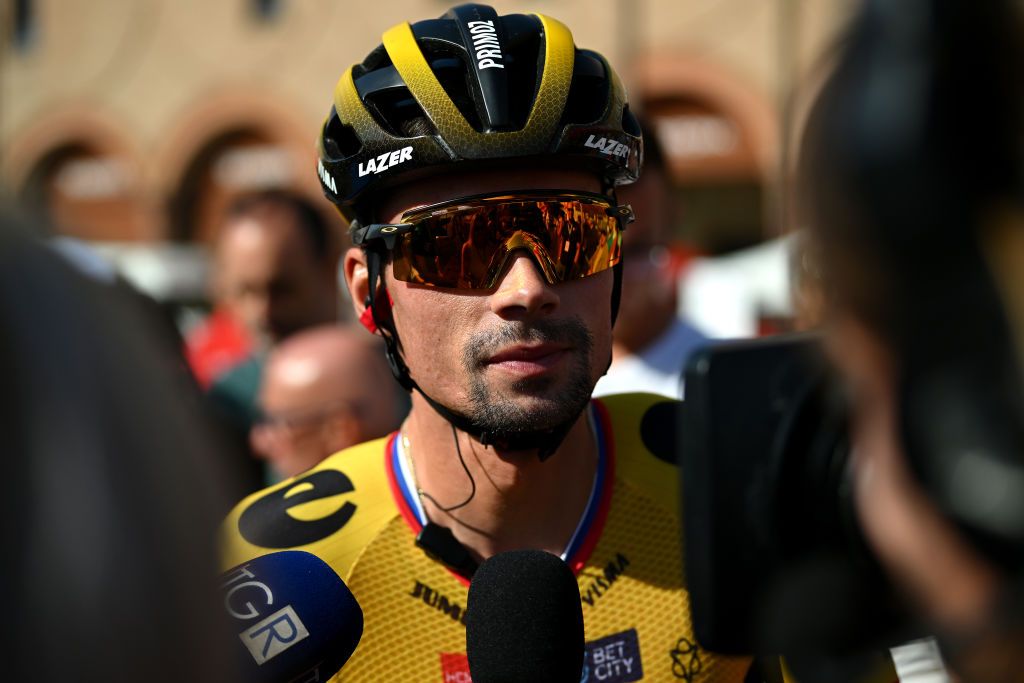In the end, Jumbo-Visma was simply no longer big enough for both Primož Roglič and Jonas Vingegaard and so a divorce, amicable or not, was expected sooner or later.
That was already apparent in the depths of last winter, when management took the decision to omit Roglič from the line-up for the 2023 Tour de France, preferring to stake their entire challenge on the defending champion Vingegaard.
Roglič knew then that a return to the top of the team’s Tour hierarchy was out of his hands. No matter what he achieved in 2023, Roglič realised he would only ever be reinstalled as Jumbo’s Tour de France leader if Vingegaard were to fall short in July.
Once Vingegaard delivered his second straight Tour victory, Roglič’s days at the team were finite. True, he was still under contract until the end of 2024 and, as recently as September, manager Richard Plugge was adamant that he remained their “king” but an exit strategy was already being devised.
Plugge released Roglič from his contract to allow him to move to Bora-Hansgrohe, and the keys to the Visma Lease a Bike Tour de France kingdom, now belonged to Vingegaard alone, with Sepp Kuss now the Dane’s understudy after his impressive Vuelta performance.
In cycling, the same tropes have a habit of repeating themselves across the generations. The story of a superseded leader seeking better opportunities elsewhere is one we have seen before, with varying levels of success.
Bernard Hinault famously pulled it off when Laurent Fignon squeezed him out at Renault. More recently, and altogether less successfully, Chris Froome left Ineos Grenadiers for Israel Premier Tech once it became apparent that he had dropped beneath Egan Bernal and Geraint Thomas in the pecking order.
Save for their age and ambition, there are few parallels between Froome’s ill-fated move to Israel and Roglič’s switch to Bora-Hansgrohe.
For one thing, Roglič arrives at Bora-Hansgrohe on the back of one of the finest seasons of his career. Coming into the Vuelta, he had a 100% 2023 stage race record, winning Tirreno-Adriatico, the Volta a Catalunya, the Giro and the Vuelta a Burgos. Only two teammates – and, perhaps, the vagaries of internal politics – prevented him from continuing the sequence at the Vuelta, where he still won at Xorret de Catí and atop the Angliru.
Bora-Hansgrohe’s approach to recruitment over the years has generally been sober and clear-headed, and the signing of Roglič was no exception.
When…
Click Here to Read the Full Original Article at CyclingNews RSS Feed…

